Published by Carlos Castresana Fernández in Law Warehouse on June 29, 2021
His life
Marino Barbero was born in 1929 in Plasencia, Cáceres. He grew up and studied in that historic city of Extremadura, and studied law at the University of Salamanca, where he graduated with an extraordinary award. A disciple of Antón Oneca, a scholar of German and Italian doctrine, he received his doctorate in Bologna, also how praise. We could define him as a distinguished jurist, professor of criminal law and author of more than 150 books –Politics and Criminal Law, Social marginalization and repressive law, Genetic engineering and assisted reproduction– and articles; but the enumeration of his undeniable academic merits would not be enough to describe the teacher, who is always a teacher by example, rather than by erudition. I
Shy, small, self-absorbed, always speaking slowly, never raising his voice, Barbero conveyed a first impression of vulnerability, accentuated by his difficulty pronouncing the letter “r,” which he slurred; but that false appearance vanished as soon as he was heard. Behind his myopic glasses he seemed like a clueless savant, but he was an exceptional communicator who always prevailed due to his inexhaustible knowledge of criminal science, on which he tirelessly lectured with pleasure, without affectation, with arguments; with astonishing confidence and conviction. He never consulted books, he didn't keep notes. He spoke, explained, reasoned, persuaded.
Accustomed, as we students of Spain were in the last years of Franco's rule, to grandiose professors who loudly proclaimed their immovable and empty truths that could not be questioned, the arrival at the Complutense University in 1975 of that bald and small-looking man discreet, who dragged through the corridors a purse that seemed bigger than him, was a revelation. With Barbero we learned to know Kant and Hegel, Carrara and Lombroso, Von Liszt and Carnelutti, but above all Beccaria. He showed us the historical dimension of Crimes and Penalties, and on the way he simply explained to us the truth unknown to us about the criminal legal framework of the dictatorship that others were silent about. They were turbulent times, and there were no shortage of angry students who disrespected and rebuked the teacher, like that day when, when Barbero explained what he called reverse amnesty law of 1940, by which General Franco, retrospectively interpreting our civil war, had declared by Decree the loyalists to be rebels and the rebels to be loyal, they interrupted him shouting freedom for Estonia, Latvia and Lithuania! The teacher replied that he agreed and continued his lesson without flinching.
We then learned the details of Marino Barbero's eventful career. We learned that in order to be able to access his first Chair of Criminal Law in Murcia in 1963, he had to challenge the decision of the academic authorities who tried to deprive him of the place he had won by competitive examination when he refused to swear allegiance to the Fundamental Principles of the National Movement, the official ideology of the Franco regime. We also learned that he titled Against the death penalty his inaugural inauguration lesson, at a time when the regime had just sentenced Julián Grimau, leader of the Communist Party, to death and executed him. We also learned that, already a professor in Salamanca, his passport was denied to prevent him from attending an invitation from German universities, giving rise to a diplomatic incident that was not resolved until the Government, under pressure from Germany, allowed him to travel. This information confirmed to us the unequivocal democratic commitment of Professor Barbero, which we had been able to verify and enjoy through his teachings, day by day, in his master classes. Therefore, it was not a surprise that he, more recognized and appreciated outside of Spain than in his own country, was chosen to join the Scientific Criminological Council of the Council of Europe.
It wasn't just the lessons. He was the example of that unwavering will to contribute to turning Spain into a State of law. One day of the exam for the chair, precisely at the appointed time, the Police showed up unexpectedly and occupied the Law Faculty. It was common practice. They entered, removed the posters of the democratic organizations, all of which were illegal in those turbulent times, made some arrests, and left. That day, some students called to the exam had to be absent due to the police presence, but the exam was held anyway. The next day we went to visit the Professor and explained the problem to him. Barbero listened to us, and without asking questions, he gave us a second chance: he made us sit right there and improvised a new exam for us. Thank you.
Marino Barbero also created a school. Some of the best Spanish criminal law professors of the next generation were his disciples: Luis Arroyo, Ignacio Berdugo, Juan Terradillos.
Supreme Court Justice
The definitive recognition of Marino Barbero's merits came when in 1986 he was promoted to the position of Magistrate of the Supreme Court, to which he acceded by the fourth shift reserved for the most prestigious jurists. He was appointed at the proposal of the General Council of the Judiciary, in which at that time the members appointed at the proposal of the socialist party held an absolute majority. We could not imagine that this recognition, the culmination of Professor Barbero's career in full democracy, would also be frustrated, as had happened on some previous occasions during the dictatorship.
In 1991, after the confession of a repentant man, the investigation of the case began in the Supreme Court. Filesa, a plot of corruption and illegal financing of the Socialist Party and its electoral campaigns. Those responsible for finances of the PSOE had formed a network of companies, Filesa, Malesa, Time Export, to which important businessmen made multimillion-dollar payments in payment for studies, reports or non-existent opinions, deliveries that in reality they made in exchange for obtaining contracts. officials and administrative concessions.
The investigation, initially assigned to a conservative Magistrate who immediately excused himself, fell to Marino Barbero. Known for his progressive disposition, and having been appointed Magistrate at the proposal of the PSOE, everyone expected that Barbero's investigation would conclude immediately without major consequences. They were wrong. The Magistrate, whose health was already broken, dedicated himself body and soul to the instruction of the procedure.
With little help, Barbero was accumulating evidence. He carried out an entry and search – a search – at the headquarters of the Arab Bank, searched the Bank of Spain, obtained the party's official accounting from the Court of Accounts, and finally searched the PSOE headquarters. The image of judicial independence in the most adverse circumstances can be illustrated with that great little Judge of the Supreme Court showing up in a taxi in front of the offices of the Government party and taking all the financial documentation of the electoral campaigns, before the astonished gaze of the taxi driver and the media who immediately gathered on Ferraz Street in Madrid.
A fierce campaign of harassment and demolition was unleashed against Marino Barbero. His investigation was constantly discredited by pro-government media. The PSOE barons viciously attacked the Magistrate, searching his private life, publishing that he did not pay his debts - in reality, a mortgage loan that he satisfied through a dation in payment - finally securing the socialist President of an Autonomous Community, of whose name I don't want to remember, that the Judge he wanted to participate in political life by opening and closing indictments in the same way that ETA participated by planting bombs. The Magistrate, who had resisted the attacks of the dictatorship as a professor, also resisted as a judge in democracy and continued working in silence.
Only in 1994 Barbero, who did not usually make public statements, responded to the discredit campaign unleashed against him, from an academic headquarters, surrounded by his people, students and professors, at the Autonomous University of Barcelona: Judicial independence is society's last hope to combat a corrupt and arrogant political power.
The Dictionary of the Royal Academy of Language defines the expression steep, used especially in Latin America, as an adjective that means lonely, abandoned, without company. The expression is used to define, therefore, more than someone who is alone, someone has been left alone.
In February 1995, Marino Barbero completed his investigation by requesting the Second Chamber of the Supreme Court to process the request to Congress, mandatory to proceed with the prosecution for an electoral crime of the Deputy Secretary General of the socialist party, Alfonso Guerra, as responsible for the financing illegal of the PSOE campaigns. Guerra had been Vice President of the Government between 1982 and 1991, and had had to resign due to another corruption scandal. The Criminal Court denied the request.
The judge then concluded the investigation with 39 defendants, among whom were two senior officials of the socialist party, one of them a senator and another a representative. Only then did he request protection from the General Council of the Judiciary, legally provided for in cases in which a magistrate sees judicial independence disturbed in the exercise of his functions. The Council denied him protection.
Marino Barbero, an ingrimo, resigned from the judicial career in July 1995, and returned to the University.
The trial of the Filesa case
The Filesa case went to trial. Illegal financing of the PSOE was proven, and the main perpetrators, including the senator and deputy who had been accused, were convicted. The Constitutional Court later ratified those convictions, and confirmed the validity of Marino Barbero's investigation. The case against the president of the Autonomous Community who had slandered the Magistrate was archived. Alfonso Guerra was never charged. The Socialist Party lost the 1996 elections.
Marino Barbero never received compensation, not even moral, for the abuses to which he was subjected, for having had to unjustly abandon his judicial career on July 31, 1995, abandoned by everyone. That day, judicial independence received a blow in Spain from which it has not recovered. An apology has never been heard from the Supreme Court or the General Council of the Judiciary. Barbero died in 2001. Except for academics, no one has since claimed his figure.
Barber's loneliness
How could the Justices of the Second Chamber of the Supreme Court deny their support to Barbero, even though the evidence that the Socialist Party had illegally financed their campaigns was overwhelming? How could those members who denied protection to a distinguished judge who was being virtually lynched become the highest representatives of Spanish judges? It was not an error, accident or coincidence, but a consequence of the deliberation and agreement of the two major parties, PP – which also had an open case before the Supreme Court for illegal financing, the Naseiro case, which was archived without trial - and PSOE: because they did not want an independent judiciary, and they did not choose the best members, but the most conformist.
However, a democracy is not only a democracy because of the vote, but also because of legality. It is not enough for rulers to periodically renew themselves in reasonably transparent electoral processes. Democracy is mainly because the same law is applied to everyone equally. And it is also due to the division of powers, due to its system of counterweights: when one of the powers exceeds its powers, there is another that limits it. In a rule of law, the judiciary is the control body par excellence. It has been like this since Montesquieu stated it: let power stop power.
Spain is an imperfect democracy, like so many others. We Spaniards inherited the judicial power that we have, like the rest of the State apparatus, for the benefit of inventory after a 40-year dictatorship. Like the other Francoist institutions, we reformed this one as best we could during the transition, and put it to serve in the new social and democratic State of law.
Accumulated experience has taught us that we did not do enough then, and today we pay the consequences. In most of the cases submitted to our courts, the public service of Spanish justice today functions reasonably well, resolves conflicts between ordinary citizens without much delay, and restores the legal order, better or worse. That, of course, is not news. On the contrary, unfortunately, in the few important cases in which the interests of large corporations or the most powerful individuals, politically, media or economically, are compromised, our judiciary has been demonstrating a very worrying deficit of independence and weakness.
Judicial independence is poorly understood by some judges as the prerogative to do what they see fit without being accountable to anyone, but this interpretation is difficult to sustain: as it could not be otherwise, the Constitution guarantees us the responsibility and prohibition of arbitrariness of all public powers, judges included.
Independence, in reality, is not a privilege of judges but a guarantee of citizens: it is the fundamental right of the defendant to have his case resolved by judges who, without accepting pressure or interference, submit only to the rule of law. .
Inequality is in the streets, in society; It is life itself. We can't change that. We are unequal for political, economic, gender, race, and nationality reasons. The greatness of democracy consists precisely in the fact that we have dared to organize ourselves in such a way that, before the law, we must all be treated as if we were equal; And for the miracle of equality before the law to become a reality, we have entrusted judges with the most difficult task of the rule of law: preventing society's inequality from crossing the threshold of the courts. Behind closed doors, all the same. And so that they take care of our equality, we have given the judges independence: with it they have to make our rights prevail against everyone. Independence is not a privilege of judges but a guarantee of citizens.
In recent years we have seen how bankers and builders converted the homes and mortgages of Spanish families into commercial products and then into financial products with which they have speculated on the stock markets until they burst. We have also seen how some rulers spent without rate, illicitly financed their parties - many other scandals have followed those of Filesa and Naseiro -, enriched themselves at our expense, destroyed the environment, and turned the future of our children into smoke. While this was happening, many orders and rulings from the Supreme and Constitutional Courts exonerated with novel legal interpretations, in cases with very notorious names, those allegedly responsible for some of the most serious frauds in our recent history. And in these days of pandemic, we are witnessing the tragedy of the loss of thousands of human lives because public health, deprived of essential resources, is incapable of responding as it should, while the unscrupulous profit with impunity from the urgent need for equipment and sanitary material.
Of all the pending issues of our democratic transition, perhaps the most important is that of judicial independence. Instead of always promoting the most capable to become members of the General Council of the Judiciary and from there ensuring the independence of the judges, our governments and parties have too often elected jurists of questionable prestige, who have then limited themselves. to serve the interests of those who had promoted them. The consequences are obvious.
Equality before the law and judicial independence are possibly the great chimeras of democracy, but they are ours. Marino Barbero showed us with his effort and sacrifice that they can come true. His figure needs to be vindicated, today more than ever. Not only or mainly because of his teachings, but because of his commitment, because of his example; because in times of anxiety we need moral certainties more than ever.

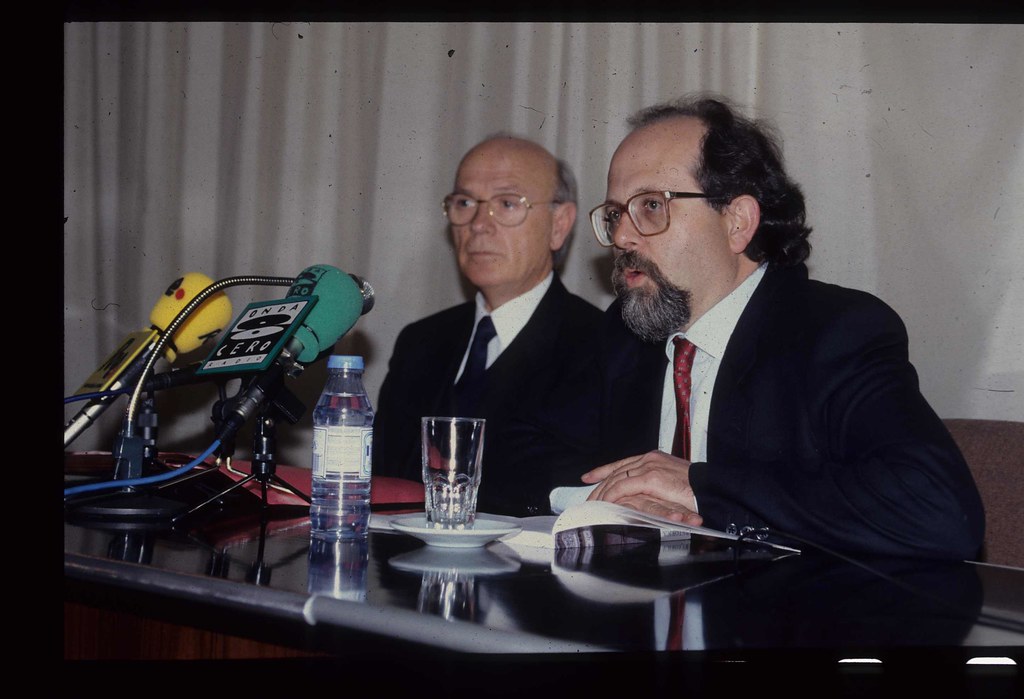
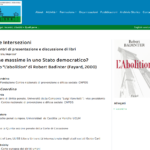
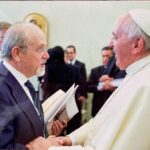
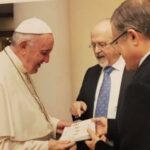
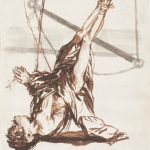
No comment yet, add your voice below!